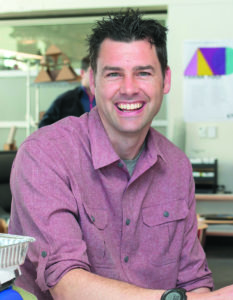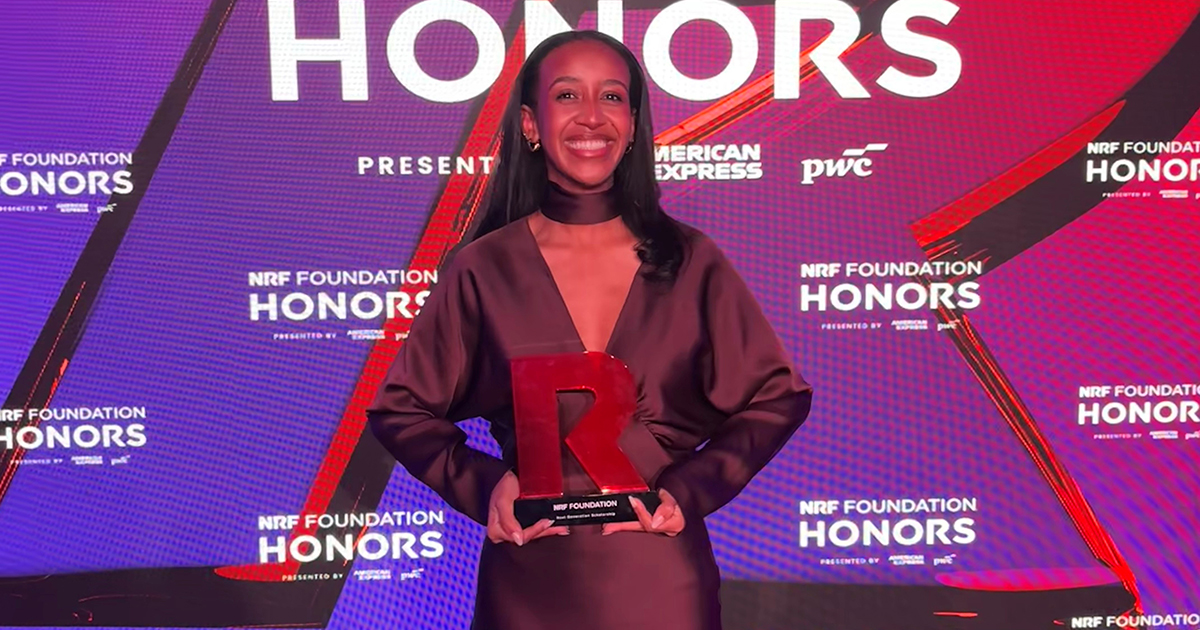Virtual Reality: How the Babson Community United in the Face of Crisis

In times of disruption, the questions often come faster than the answers.
What does this mean? What do we do about it? Are we prepared? How quickly can we transition? When do we act?
When Babson College announced March 10 that it would move classes online and students off campus in response to the coronavirus pandemic—after days of deliberations in the face of the escalating global crisis—the questions only accelerated.
What about grades? What about spring sports? What about Commencement? When will this end?
Answers large and small would arrive over the hours, days, and weeks ahead as Babson completed a remarkable transformation to a virtual campus over spring break, while keeping the community connected even as students are scattered around the world.
For the latest updates on the College’s response to 2019 Novel Coronavirus (COVID-19), visit babson.edu/coronavirus.
Amid the unprecedented uncertainty, a trio of unwavering confidences guided the College’s path forward:
- The health, safety, and academic continuity of students remains paramount.
- The community of entrepreneurial leaders will respond.
- Babson was built to excel in moments of great disruption.
“We’re entrepreneurs. We all know the importance of problem solving and creating value, and we’re seeing that emerge across campus now in a dramatic way,” says President Stephen Spinelli Jr. MBA’92, PhD. “It’s the belief that Babson would react in an exceptional manner.”
‘Community Remains Strong’
In times of disruption, the questions often are accompanied by an array of shared emotions.
As it grapples with the global crisis, the Babson community shares a sense of isolation—from one another, from campus. It shares a concern for the future and the well-being of family and friends. It shares a sense of mourning for what has been lost or altered—traditional experiences, clubs, events, co-curricular activities, Commencement, normalcy itself.
At the same time, the College community shares a common belief in the power of entrepreneurial leadership, a common belief that has bonded it together in literal ways amid a new virtual reality.
So, facing questions and uncertainty, Babson reacted.
Students began packing, moving, and creating ways to stay connected. Faculty began altering lessons and teaching methods. Alumni began offering their time, money, and assistance. Staff began transitioning the student support systems—including academic advising, professional and career development, and the College’s centers and institutes—to sustain the growing and vibrant virtual campus. (Read more about the Babson Heroes who rose to the occasion.)
“I’m enormously proud of the Babson community,” says Lawrence P. Ward, vice president for student affairs and dean of students. “Even though we don’t see each other on a regular basis in person, I believe the community remains strong and remains committed to a shared sense of goals.”
“What our faculty have done over the past two weeks is the ultimate affirmation that they care so deeply about Babson College, and they have such a deep love for our students’ success and students’ learning.”
Ian Lapp, dean of the undergraduate school
At the heart of the virtual campus, of course, is the online learning.
Phillip Knutel, vice president and chief information officer, mobilized his teams in the Information Technology Services Division, building on a tremendous amount of work and progress over the past year to bulk up the graduate school’s online offerings. Eric Palson MBA’09, director of academic technologies, and Dave Foscaldo, director of media and production services, worked together to quickly provide training and documentation for faculty to utilize an array of online tools, including Webex, Canvas, Google Drive, Brainshark, and LinkedIn Learning. They also prepared additional IT “drivers”—both student assistants and newly trained IT staff —to help faculty members with the technical aspects during live classes.
“It was a Manhattan Project-like mentality,” Spinelli says. “People were working 18-hour days to get it ready.”
In all, they transitioned 650 courses online in a week, and nearly 200 faculty members were trained to teach online. When classes resumed after spring break March 23, Babson began its new virtual reality.
‘Love for Our Students’ Success’
In times of disruption, as one problem is solved, others emerge, opportunities emerge. It’s the entrepreneurial leaders who continually adapt, move forward, and add value.
In the first days after spring break, faculty members were finding innovative ways to maintain academic continuity and deliver lessons and experiences to students at their new residences.
“We may have had the smoothest and most glitch-free transition of any school in the country,” says Keith Rollag, dean of the graduate school. “After a week, we’ve already settled into routines and are looking beyond the transition to other challenges.”

David Blodgett, assistant professor of biology, preserved his students’ lab experiment in his Sustainable Food Systems course. Photo: Paige Brown
David Blodgett, assistant professor of biology, immediately thought about his students’ plants and their experiment for his Sustainable Food Systems course.
“I have some old data that we could use, but just looking at data is going to be boring,” Blodgett says. “If I just give the students a couple of tables of data with the back story, they won’t have any point of reference for what yield means, what pollination means. I can show pictures or find videos, but not on the plants that we grew.”
So Blodgett preserved the lab experiment by moving it to his home. A day after Babson’s announcement, he loaded a plant stand into his car, along with 40 of the nearly 80 potted Wisconsin Fast Plants, and the necessary lighting and supplies. Over spring break, Blodgett began caring for and pollinating the plants, and collecting all of the data to study the effects of pollination and soil on growth and yield rates. So when his students meet for class via Webex on Mondays and Wednesdays, they not only have real-time data but they also can observe their plants.
That’s just one prime example of faculty members who embraced opportunity and quickly added tangible value to a virtual environment.
“What our faculty have done over the past two weeks is the ultimate affirmation that they care so deeply about Babson College, and they have such a deep love for our students’ success and students’ learning,” said Ian Lapp, dean of the undergraduate school. “Nobody questioned the amount of work they had to put in to get their courses online. Everyone just did it.”
‘A Real-Life Case Study’
In times of disruption, the world needs leaders to answer the call.
Babson has been No. 1 in entrepreneurship education for nearly three decades, and it’s already building for the future with the Arthur M. Blank School for Entrepreneurial Leadership. Perhaps better than any institution, Babson is poised for this moment—and the challenges ahead.
“Babson was built for this kind of problem. This is a place that sees problem solving and collaboration as competitive advantages,” Spinelli says. “Now, as the world experiences this unprecedented disruption, the need for entrepreneurial leaders has never been greater, and the value of Babson becomes more and more evident.”
“Babson was built for this kind of problem. This is a place that sees problem solving and collaboration as competitive advantages.”
President Stephen Spinelli Jr. MBA'92, PhD
Higher education likely will never be the same following the coronavirus pandemic. The lines between traditional learning and digital learning will continue to be blurred as the demands of other changing markets and industries also evolve. And Babson stands ready to lead in unique ways.
Spinelli calls it “a real-life case study”—one in which the students are learning firsthand about labor economics, the stock market, public policy, food sustainability, and much more while adapting to a digital future amid their own real-life challenges.
There’s nothing virtual about the lessons they’re learning—lessons that will set this special group of Babson students apart as it transitions to the workforce in the months and years ahead, and lessons that empower them to solve future challenges in the decades to come.
“We will prove to be some of the great problem solvers of our time, and we can do something special,” Spinelli says. “This is the type of challenge we’ve been expecting, and we’re proving that we’re up to the task.”
Whatever questions arise, Babson will find the answers.
Posted in Community




